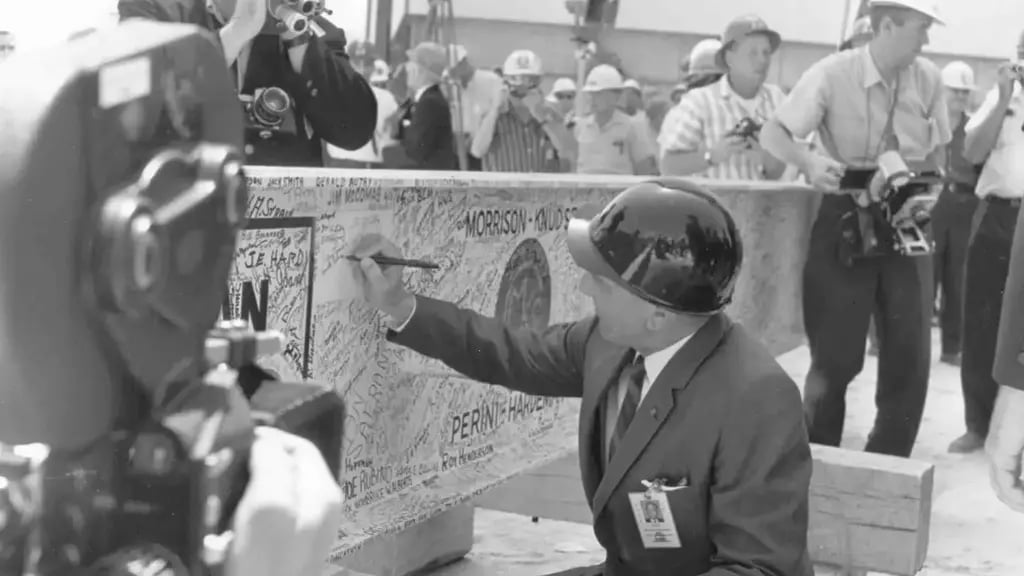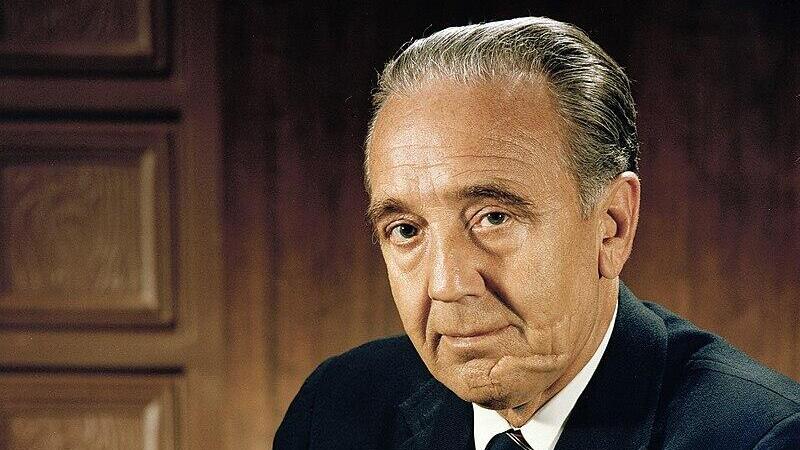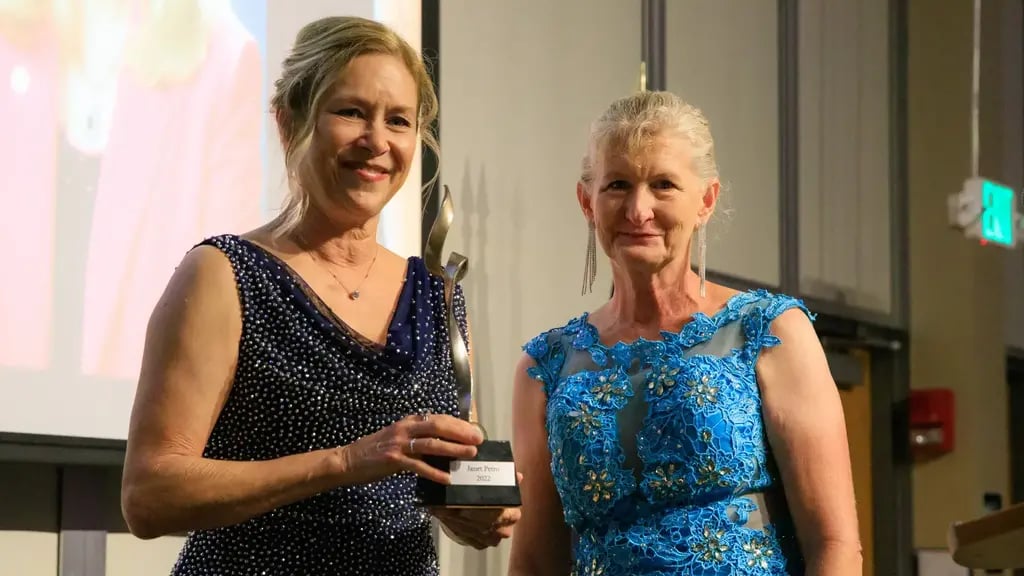Getting your Trinity Audio player ready...
Debus, the first director of what is now Kennedy Space Center in Florida, was never prosecuted for his role in the Nazi regime. He was deeply involved in Germany’s V-2 rocket project, which used forced labor from concentration camp prisoners and targeted civilian areas in the UK and elsewhere. Despite this history, his name remained on NASA facilities for years with little public scrutiny.
The conference hall that bore his name, the Dr. Kurt H. Debus Conference Facility, was recently renamed the Heroes and Legends Conference Facility. A spokesperson for Kennedy Space Center said the new name “reflects the contributions of many throughout history who helped establish the United States as a global leader in space exploration.”
While no formal reason was provided, the timing follows growing public awareness and media coverage of Debus’s Nazi past.
Though credited with helping lead the Apollo program and the first manned moon landing, Debus’s Nazi affiliations were largely ignored for decades. Until recently, his NASA biography made no mention of terms like “Nazi,” “Third Reich,” or “SS,” instead vaguely referring to his work on a “rocket research program at Peenemunde.”
In reality, Peenemunde was the heart of Nazi Germany’s V-2 missile program. Roughly 10,000 forced laborers — primarily from the Dora-Mittelbau concentration camp — died building the rockets.
Debus, an electrical engineer by training, was not just a participant in the program; he was an SS officer with the rank of Sturmbannfuhrer (major) and a staunch Nazi loyalist. According to historians, he even reported a colleague to the Gestapo for failing to salute him with a Nazi greeting.
After the war, Debus was neither investigated nor tried. He was among hundreds of German scientists brought to the U.S. under Operation Paperclip, a secret American initiative to recruit Nazi-era experts to gain an edge over the Soviet Union.
The operation, which included former SS members, was approved at the highest levels of government despite objections from Jewish groups and internal opposition within the U.S. defense establishment.
Debus was granted U.S. citizenship and held senior positions in the space program. Known among peers for his technical vision, he helped transition the U.S. from experimental launches to manned missions. He led the launch center at Merritt Island, Florida, which in 1968 was officially renamed Kennedy Space Center.
Get the Ynetnews app on your smartphone: Google Play: https://bit.ly/4eJ37pE | Apple App Store: https://bit.ly/3ZL7iNv
Even after his death in 1983, Debus remained a celebrated figure within NASA circles. In addition to the facility named after him, an official “Debus Award” was given annually to aerospace leaders in Florida. In 2022, the award was presented to then-Kennedy Center director Janet Petro, who praised Debus’s contributions to Apollo without mentioning his Nazi past.
NASA’s decision to erase his name came shortly after American media reports criticized the agency for whitewashing Debus’s biography. In response, NASA updated the online biography, renamed the conference hall and rebranded the award. Although no public statement was issued, Debus’s name has been removed from official events and visitor materials now reflect the new policy.
With Debus’s name now largely gone from institutional memory, only one prominent Nazi figure remains officially commemorated in U.S. space history: Wernher von Braun. Often referred to as the “father of the American space program,” von Braun was also a key architect of the V-2 missile and a former SS officer.
In 2021, the U.S. Space & Rocket Center in Huntsville, Alabama — affiliated with the Smithsonian — removed a statue and quote attributed to von Braun. However, multiple facilities in the city, including research centers, a science symposium and a performance hall, still bear his name in partnership with NASA-linked institutions like the University of Alabama.






